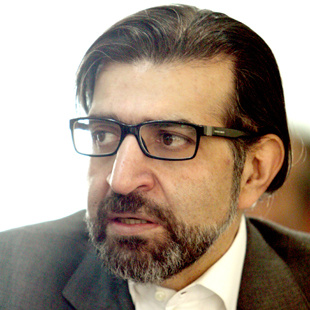The US and the Iran-phobia Project

Now, after the death of Bin Laden, the US and Israeli lobbies are beginning to pound the drum of Iran-phobia, and make the claim that the main danger in the region- which should be addressed- is Iran. The US congress, led by the Republicans, is leading this project. However, we should not forget the continuous efforts of the Obama administration as well. A report by Congress released last week regarding the so-called cooperation between Al-Qaeda and Quds forces, has prepared the groundwork for further action against Iran. It is clear that after the death of Bin Laden, when in the sanctions against Syria the Quds force are also named, this report gains certain importance and meaning. More details on the recent anti-Iran efforts of the Congress will be discussed next.
A group of senators from both parties are sponsoring the “The Law of Human Rights and Democracy Promotion in Iran” resolution, according to which, besides sanctions on foreign companies, a human rights representative will be present in Iran. Mark Kirk, Republican senator from Illinois, recently stated that the president issued the order for an increase in forces in Afghanistan and the killing of Bin Laden, but said that he had shown weaker actions against Iran. The killing of Bin Laden is in the headlines now, he said, but he also hoped that the US would turn its attention back to the number one danger in region, Iran.
According to one of the Republican leaders, the Senate is considering the passing of a comprehensive law with regard to Iran that includes issues such as human rights promotion and energy. The main aim of this law is to put companies who work with Iran in the energy sector under pressure. Even Kristen Gillibrand, Democratic senator from New York, is considering a plan according to which companies who conceal their trade with Iran would be prosecuted under criminal law. Even though the main sponsors of the comprehensive law have not been officially announced, Republican Arizona Senator Jon Kyl, independent Connecticut Senator Joe Lieberman and Mark Kirk wrote a letter in this regard to the State Department and the Treasury on March 28th.
The House is also working on new sanctions against Iran, however, it is understood that the House is more focused on better enforcement of the current sanctions. We understand that confronting Chinese companies that find ways around the sanctions on Iran is the priority for the House and the Senate.
The US government is also busy implementing the following actions in addition to taking anti-Iran positions:
The US Treasury Department is finalizing a blacklist of a number of foreign banks that ignore US sanctions against Iran. David S. Cohen, Treasury's Assistant Secretary for Terrorist Financing, said in a Senate session that the US will strongly enforce Congress’ law in this regard. He also stated that “The first option is to force banks to stop cooperating with Iran, and the second one is to put sanctions on them as well.” Last week Cohen visited Istanbul and tried to convince Turkish banks to end their cooperation with Iran.
A few days ago Daniel Benjamin, Assistant Secretary of State, announced that the US will decide whether to remove the MKO from its terrorist list in the next six months. With all the European efforts, it is not unlikely that the prerequisites for removing the MKO from the US terrorist list are being prepared. The above mentioned cases are examples of US hostilities against Iran. It is likely that this process will gain even further momentum with the US presidential primary elections ahead of us, while candidates from both parties will try to gain the upper hand in foreign policy.
Now the question is how seriously should our government officials consider these measures. The fact that the US and Israel know that they should not even think about military action against Iran is known to everyone. The US and its allies are well aware that getting into a war with Iran is playing with fire, and therefore they focus their attention on punitive measures, while every once in a while they mention the possibility of “all options on the table”, which is only a political bluff. The point is that we should have a plan for all the tricks of our enemy. We should have a plan for the sanctions which are resulting in more expensive imports. The mere fact that despite the sanctions our economy is surviving does not solve the issue. We should start nuclear negotiations as soon as possible, and while emphasizing our fundamental positions we should continue the negotiations until we come to a mutually acceptable conclusion. Otherwise, all sides will be affected by the results of our inaction or the actions of the US and its allies.

